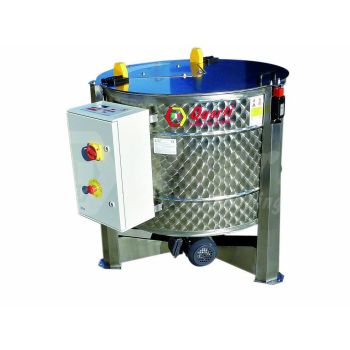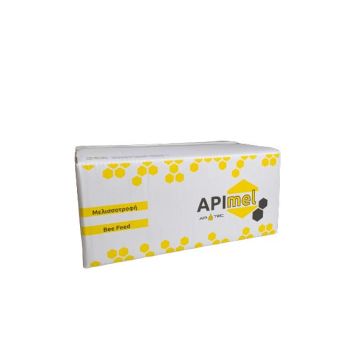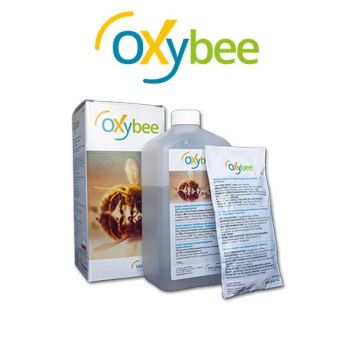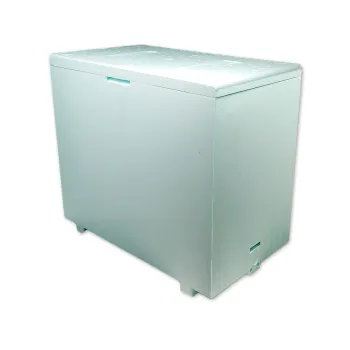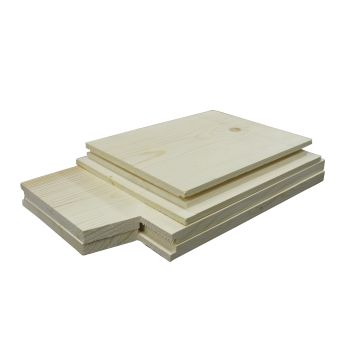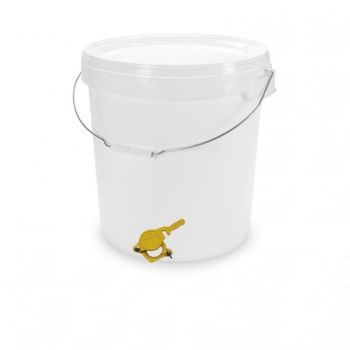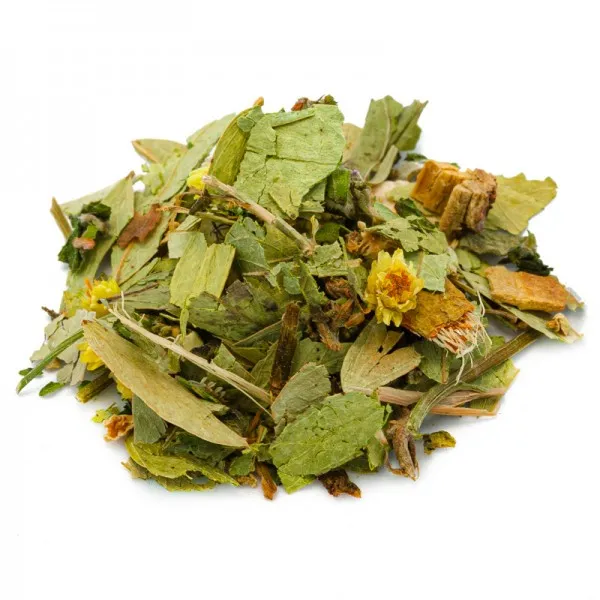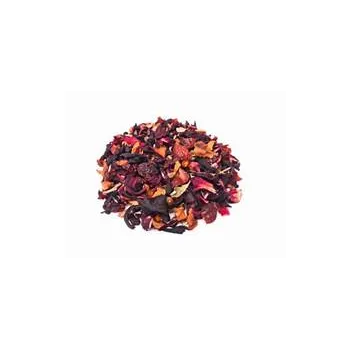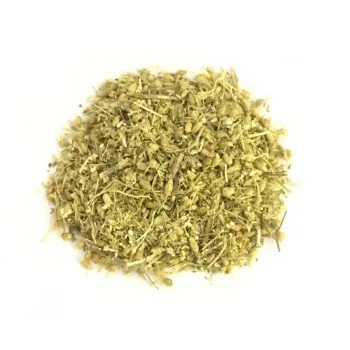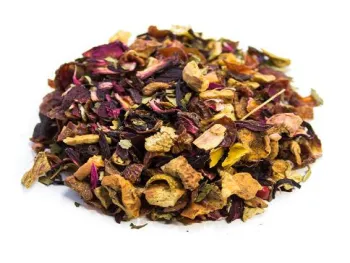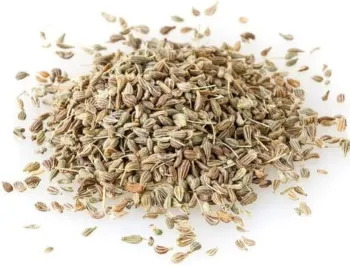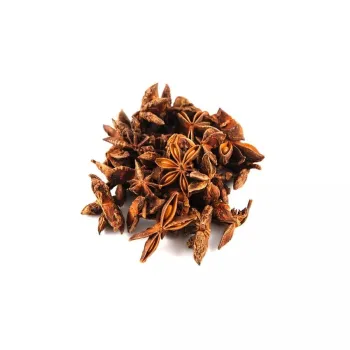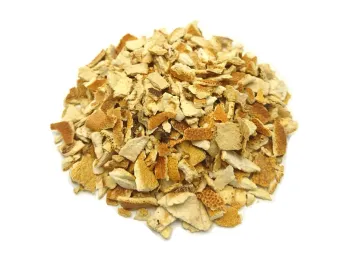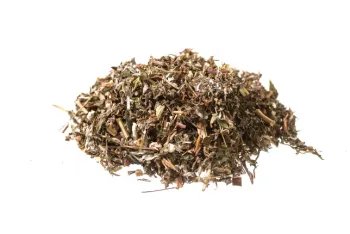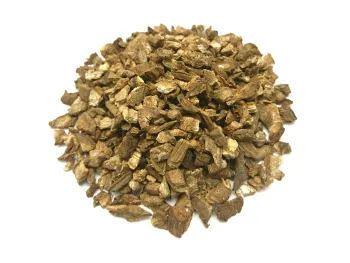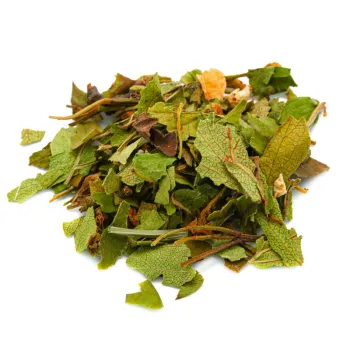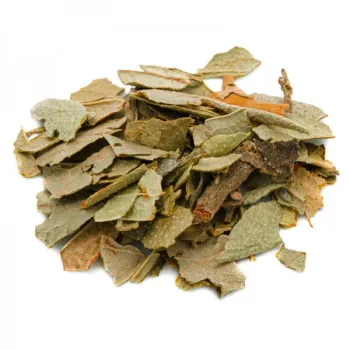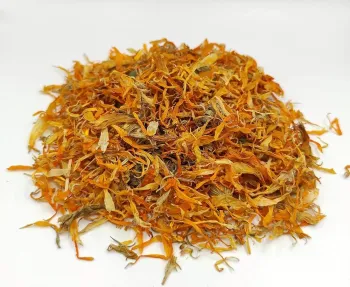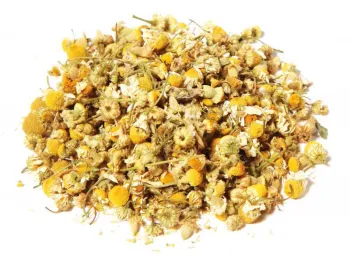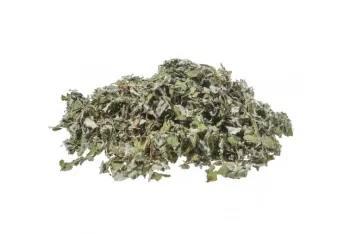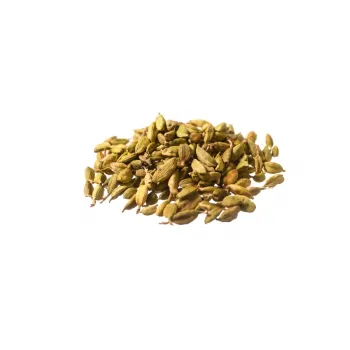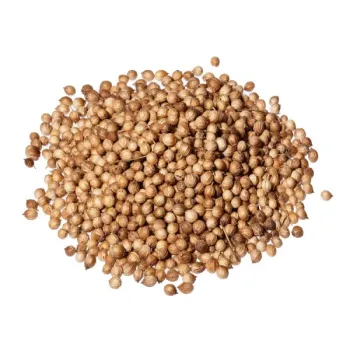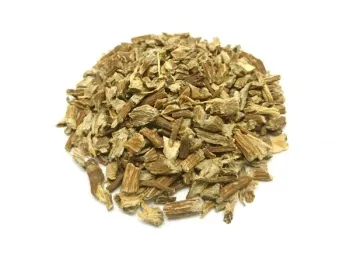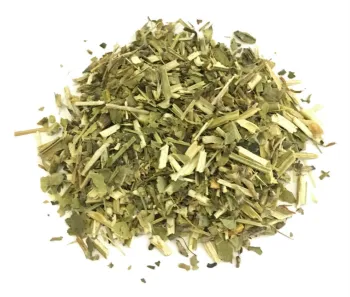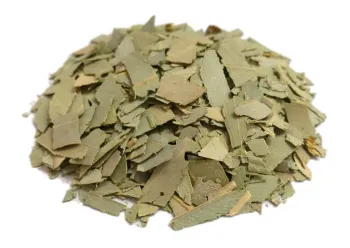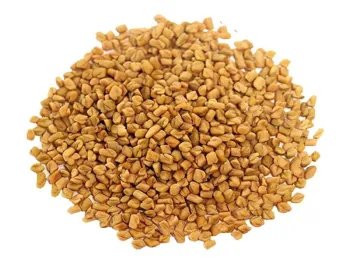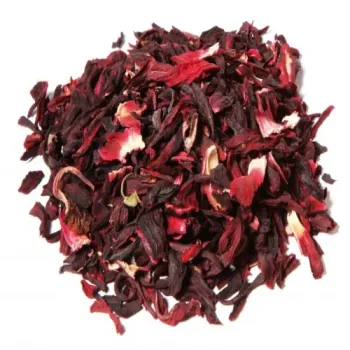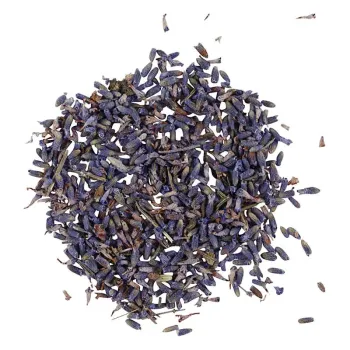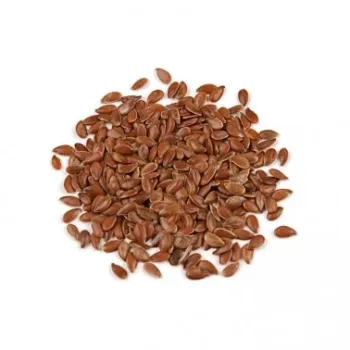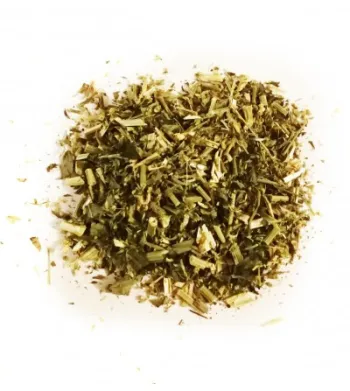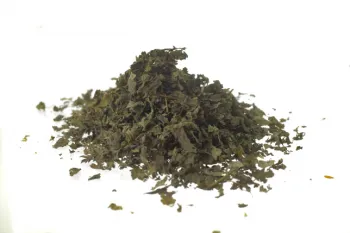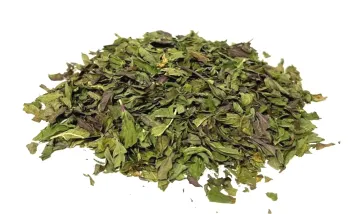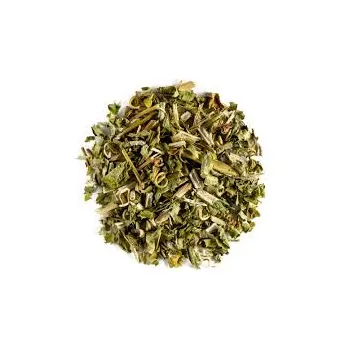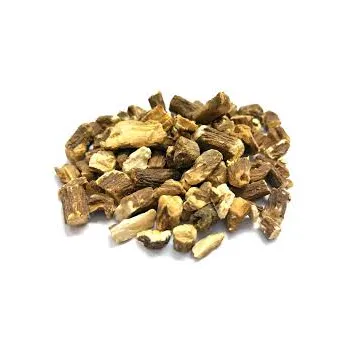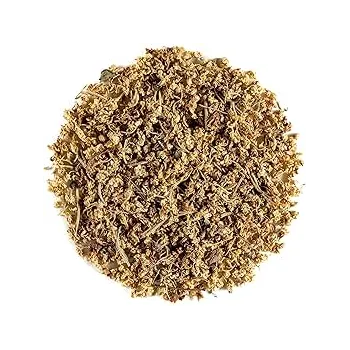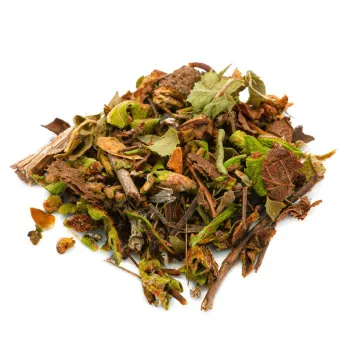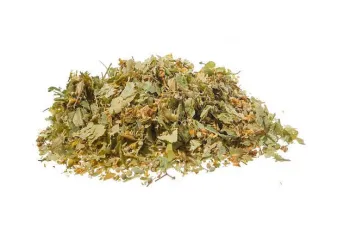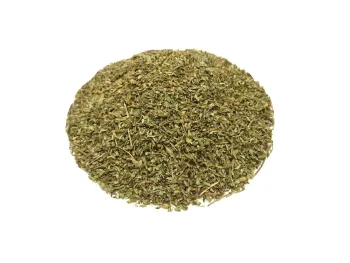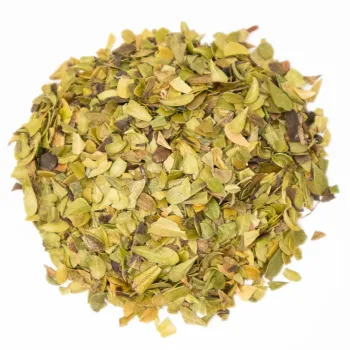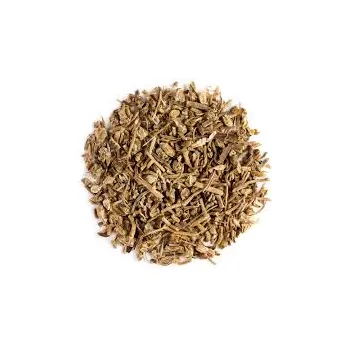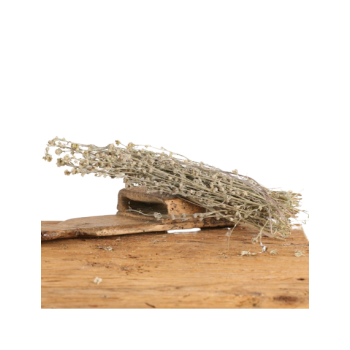Loose dried leaves, flowers and roots for herbal teas, decoctions and infusions
Preparation of infusion: steep 1 level tablespoon of Hawthorn in a cup of boiling water for about 10 minutes. Contraindications: Contraindicated for those suffering from low blood pressure. Avoid taking concurrently with antihypertensive medications without first consulting your doctor.
Preparation of infusion: steep 1 level tablespoon of Hawthorn in a cup of boiling water for about 10 minutes. Contraindications: Contraindicated for those suffering from low blood pressure. Avoid taking concurrently with antihypertensive medications without first consulting your doctor.
Botanical name: Crataegus oxyacantha auct Properties and benefits:- Sedative/Relaxing- Hypotensive- Cardiotonic- Regulator of cardiac activity Main uses are in the treatment of mild heart failure and arrhythmias, palpitations and mild hypertension.In addition, for its sedative action it is used to soothe anxious situations and insomnia. (This product may undergo a natural variation in weight.) In 100 g, 200 g or 500 g package
Botanical name: Crataegus oxyacantha auct Properties and benefits:- Sedative/Relaxing- Hypotensive- Cardiotonic- Regulator of cardiac activity Main uses are in the treatment of mild heart failure and arrhythmias, palpitations and mild hypertension.In addition, for its sedative action it is used to soothe anxious situations and insomnia. (This product may undergo a natural variation in weight.) In 100 g, 200 g or 500 g package
Botanical name: Crataegus oxyacantha auct Properties and benefits:- Sedative/Relaxing- Hypotensive- Cardiotonic- Regulator of cardiac activity Main uses are in the treatment of mild heart failure and arrhythmias, palpitations and mild hypertension.In addition, for its sedative action it is used to soothe anxious situations and insomnia. (This product may undergo a natural variation in weight.) In 100 g, 200 g or 500 g package
Preparation of infusion: steep 1 level teaspoon of calendula flowers in a cup of boiling water (about 250 ml) for about 10 minutes. Regular intake of calendula herbal tea is particularly useful for:- Counteracting menstrual cycle disorders (we also talked about it here Menstrual pain herbal teas)- Soothing inflammation of the digestive tract- Read also "Herbal teas for your digestion"- Relieving inflamed gums and throat Contraindications: this plant has no particular contraindications and the risk of allergy associated with it is very low.
Preparation of infusion: steep 1 level teaspoon of calendula flowers in a cup of boiling water (about 250 ml) for about 10 minutes. Regular intake of calendula herbal tea is particularly useful for:- Counteracting menstrual cycle disorders (we also talked about it here Menstrual pain herbal teas)- Soothing inflammation of the digestive tract- Read also "Herbal teas for your digestion"- Relieving inflamed gums and throat Contraindications: this plant has no particular contraindications and the risk of allergy associated with it is very low.
Botanical name: Calendula officinalis L. Properties and benefits: Calendula flowers are known for their healing and soothing properties; they are effective in the treatment of minor burns, dermatitis and skin irritations (provides relief from skin irritations, eczema, minor burns by applying a gauze soaked in the infusion to the affected area) Calendula is often used for the preparation of herbal teas and infusions, which promote digestion and contribute to the functionality of the digestive system, but not only that: they contribute to the well-being of women during the menstrual cycle. Calendula flowers can be used in the preparation of ointments and creams, with moisturizing action to soothe dry, irritated or sensitive skin.Calendula is a popular ingredient in natural cosmetics because of its ability to brighten skin tone and promote cell regeneration. (This product may be subject to natural variation in weight.) In 50 g, 100 g, 200 g or 500 g package
Botanical name: Calendula officinalis L. Properties and benefits: Calendula flowers are known for their healing and soothing properties; they are effective in the treatment of minor burns, dermatitis and skin irritations (provides relief from skin irritations, eczema, minor burns by applying a gauze soaked in the infusion to the affected area) Calendula is often used for the preparation of herbal teas and infusions, which promote digestion and contribute to the functionality of the digestive system, but not only that: they contribute to the well-being of women during the menstrual cycle. Calendula flowers can be used in the preparation of ointments and creams, with moisturizing action to soothe dry, irritated or sensitive skin.Calendula is a popular ingredient in natural cosmetics because of its ability to brighten skin tone and promote cell regeneration. (This product may be subject to natural variation in weight.) In 50 g, 100 g, 200 g or 500 g package
Botanical name: Calendula officinalis L. Properties and benefits: Calendula flowers are known for their healing and soothing properties; they are effective in the treatment of minor burns, dermatitis and skin irritations (provides relief from skin irritations, eczema, minor burns by applying a gauze soaked in the infusion to the affected area) Calendula is often used for the preparation of herbal teas and infusions, which promote digestion and contribute to the functionality of the digestive system, but not only that: they contribute to the well-being of women during the menstrual cycle. Calendula flowers can be used in the preparation of ointments and creams, with moisturizing action to soothe dry, irritated or sensitive skin.Calendula is a popular ingredient in natural cosmetics because of its ability to brighten skin tone and promote cell regeneration. (This product may be subject to natural variation in weight.) In 50 g, 100 g, 200 g or 500 g package
Preparation of infusion: put 1 tablespoon of dried seeds in a cup of boiling water for about 10 minutes. Strain and drink. Contraindications: no particular side effects are reported at the recommended doses, unless there is a particular individual sensitivity. Contraindicated if taking antidiabetic and anticoagulant drugs, in pregnancy and lactation.
Preparation of infusion: put 1 tablespoon of dried seeds in a cup of boiling water for about 10 minutes. Strain and drink. Contraindications: no particular side effects are reported at the recommended doses, unless there is a particular individual sensitivity. Contraindicated if taking antidiabetic and anticoagulant drugs, in pregnancy and lactation.
Botanical name: Properties and benefits:- Tonic, restorative- Promotes triglyceride and cholesterol metabolism- Promotes sugar metabolism Uses:- Convalescence- Fatigue, asthenia- Leanness (stimulates appetite)- Hypercholesterolemia- Hyperglycemia (This product may undergo natural weight variation) In 50 g, 100 g, 200 g or 500 g package
Botanical name: Properties and benefits:- Tonic, restorative- Promotes triglyceride and cholesterol metabolism- Promotes sugar metabolism Uses:- Convalescence- Fatigue, asthenia- Leanness (stimulates appetite)- Hypercholesterolemia- Hyperglycemia (This product may undergo natural weight variation) In 50 g, 100 g, 200 g or 500 g package
Botanical name: Properties and benefits:- Tonic, restorative- Promotes triglyceride and cholesterol metabolism- Promotes sugar metabolism Uses:- Convalescence- Fatigue, asthenia- Leanness (stimulates appetite)- Hypercholesterolemia- Hyperglycemia (This product may undergo natural weight variation) In 50 g, 100 g, 200 g or 500 g package
Preparation of infusion: put 1 tablespoon of dried leaves in a cup of boiling water for 10 minutes. Strain and drink 2-3 cups daily. Contraindications: no side effects are reported at the recommended dosages, except in case of individual allergy to the plant.
Preparation of infusion: put 1 tablespoon of dried leaves in a cup of boiling water for 10 minutes. Strain and drink 2-3 cups daily. Contraindications: no side effects are reported at the recommended dosages, except in case of individual allergy to the plant.
Botanical name: Hibiscus sabdariffa L. Common names: Hibiscus Properties and benefits:- Mildly laxative- Vitaminizing, antioxidant- Vasoprotective Used for:- Constipation- Swollen and heavy legs- Capillary fragility- Asthenia (This product may undergo a natural variation in weight) In 50 g, 100 g, 200 g or 500 g package
Botanical name: Hibiscus sabdariffa L. Common names: Hibiscus Properties and benefits:- Mildly laxative- Vitaminizing, antioxidant- Vasoprotective Used for:- Constipation- Swollen and heavy legs- Capillary fragility- Asthenia (This product may undergo a natural variation in weight) In 50 g, 100 g, 200 g or 500 g package
Botanical name: Hibiscus sabdariffa L. Common names: Hibiscus Properties and benefits:- Mildly laxative- Vitaminizing, antioxidant- Vasoprotective Used for:- Constipation- Swollen and heavy legs- Capillary fragility- Asthenia (This product may undergo a natural variation in weight) In 50 g, 100 g, 200 g or 500 g package
Preparation of infusion: put 1 large level tablespoon of dried herb in a cup of boiling water and let steep for 10 minutes. Strain and drink 2 to 3 cups daily. Contraindications: no contraindications except cases of individual hypersensitivity to the plant.
Preparation of infusion: put 1 large level tablespoon of dried herb in a cup of boiling water and let steep for 10 minutes. Strain and drink 2 to 3 cups daily. Contraindications: no contraindications except cases of individual hypersensitivity to the plant.
Botanical name: Urtica dioica L. Properties and benefits:- Diuretic and depurative (aerial part)- Remineralizing (aerial part)- Anti-inflammatory (aerial part)- Antianemic, restorative, tonic (aerial part)- Prostate cell inhibitor (root) Useful for:- Water retention, swelling and cellulite (aerial part)- Gout (aerial part)- Kidney and small kidney stones (aerial part)- Seasonal purification cycles (aerial part)- Pain, rheumatism, arthritis and arthritis (aerial part)- Osteoporosis and bone fractures (aerial part)- Anemia, fatigue and asthenia (aerial part)- Urinary tract infections (aerial part)- Enlarged and inflamed prostate (root) (This product may undergo a natural variation in weight) In 50 g, 100 g, 200 g or 500 g package
Botanical name: Urtica dioica L. Properties and benefits:- Diuretic and depurative (aerial part)- Remineralizing (aerial part)- Anti-inflammatory (aerial part)- Antianemic, restorative, tonic (aerial part)- Prostate cell inhibitor (root) Useful for:- Water retention, swelling and cellulite (aerial part)- Gout (aerial part)- Kidney and small kidney stones (aerial part)- Seasonal purification cycles (aerial part)- Pain, rheumatism, arthritis and arthritis (aerial part)- Osteoporosis and bone fractures (aerial part)- Anemia, fatigue and asthenia (aerial part)- Urinary tract infections (aerial part)- Enlarged and inflamed prostate (root) (This product may undergo a natural variation in weight) In 50 g, 100 g, 200 g or 500 g package
Botanical name: Urtica dioica L. Properties and benefits:- Diuretic and depurative (aerial part)- Remineralizing (aerial part)- Anti-inflammatory (aerial part)- Antianemic, restorative, tonic (aerial part)- Prostate cell inhibitor (root) Useful for:- Water retention, swelling and cellulite (aerial part)- Gout (aerial part)- Kidney and small kidney stones (aerial part)- Seasonal purification cycles (aerial part)- Pain, rheumatism, arthritis and arthritis (aerial part)- Osteoporosis and bone fractures (aerial part)- Anemia, fatigue and asthenia (aerial part)- Urinary tract infections (aerial part)- Enlarged and inflamed prostate (root) (This product may undergo a natural variation in weight) In 50 g, 100 g, 200 g or 500 g package
Preparation of infusion: Contraindications:
Preparation of infusion: Contraindications:
Botanical name: Vernal names: Properties and benefits: (This product may undergo natural variation in weight) In 50 g, 100 g, 200 g package
Botanical name: Vernal names: Properties and benefits: (This product may undergo natural variation in weight) In 50 g, 100 g, 200 g package
Botanical name: Vernal names: Properties and benefits: (This product may undergo natural variation in weight) In 50 g, 100 g, 200 g package
Preparation of infusion: put 1 tablespoon of dried berries in a cup of hot water and let steep for about 10 minutes. Strain and drink 2 to 3 cups daily. Contraindications: plant with no side effects and very safe even in children. Avoid use in cases of individual hypersensitivity to the plant.
Preparation of infusion: put 1 tablespoon of dried berries in a cup of hot water and let steep for about 10 minutes. Strain and drink 2 to 3 cups daily. Contraindications: plant with no side effects and very safe even in children. Avoid use in cases of individual hypersensitivity to the plant.
Botanical name: Rosehip L. Properties and benefits:- Vitaminizing (berries)- Antioxidant, helps fight free radicals (berries)- Energetic and antiasthenic (berries)- Protective of microcirculation (berries)- Immunostimulant, promotes the body's natural defenses (buds)- Antiallergic (buds) Used for: - Vitamin C deficiency (berries)- Increased demand for vitamin C: Stress, intense athletic activity, pregnancy, colds, flu, smokers (berries)- Capillary fragility (berries)- Physical and mental fatigue and weakness (berries)- Adjuvant in the treatment and prevention of cold diseases of the respiratory tract, even in children (buds)- Allergic colds, sneezing, itchy eyes and ears, excessive tearing caused by allergies (buds) (This product may undergo a natural variation in weight) In 50 g, 100 g, 200 g or 500 g package
Botanical name: Rosehip L. Properties and benefits:- Vitaminizing (berries)- Antioxidant, helps fight free radicals (berries)- Energetic and antiasthenic (berries)- Protective of microcirculation (berries)- Immunostimulant, promotes the body's natural defenses (buds)- Antiallergic (buds) Used for: - Vitamin C deficiency (berries)- Increased demand for vitamin C: Stress, intense athletic activity, pregnancy, colds, flu, smokers (berries)- Capillary fragility (berries)- Physical and mental fatigue and weakness (berries)- Adjuvant in the treatment and prevention of cold diseases of the respiratory tract, even in children (buds)- Allergic colds, sneezing, itchy eyes and ears, excessive tearing caused by allergies (buds) (This product may undergo a natural variation in weight) In 50 g, 100 g, 200 g or 500 g package
Botanical name: Rosehip L. Properties and benefits:- Vitaminizing (berries)- Antioxidant, helps fight free radicals (berries)- Energetic and antiasthenic (berries)- Protective of microcirculation (berries)- Immunostimulant, promotes the body's natural defenses (buds)- Antiallergic (buds) Used for: - Vitamin C deficiency (berries)- Increased demand for vitamin C: Stress, intense athletic activity, pregnancy, colds, flu, smokers (berries)- Capillary fragility (berries)- Physical and mental fatigue and weakness (berries)- Adjuvant in the treatment and prevention of cold diseases of the respiratory tract, even in children (buds)- Allergic colds, sneezing, itchy eyes and ears, excessive tearing caused by allergies (buds) (This product may undergo a natural variation in weight) In 50 g, 100 g, 200 g or 500 g package
Preparation of infusion: steep 1 tablespoon of dried herb in a cup of boiling water for about 10 minutes. Strain and drink 2-3 cups during the day. Contraindications: its use is not recommended during pregnancy and in case of individual allergy to the plant.
Preparation of infusion: steep 1 tablespoon of dried herb in a cup of boiling water for about 10 minutes. Strain and drink 2-3 cups during the day. Contraindications: its use is not recommended during pregnancy and in case of individual allergy to the plant.
Botanical name: Thymus vulgaris L. Common names:- Properties and benefits:- Antiseptic, antibacterial, antifugal and antioxidant- Cough soother- Mucolytic and expectorant: promotes fluidization and elimination of excess phlegm- Promotes bile production (choleretic action)- Improves digestive processes due to its ability to counteract the formation of gas and fermentation in the stomach and intestines Useful for:- Cooling illnesses of the respiratory tract- Halitosis- Digestive difficulties, bloating, meteorism- Intestinal parasitosis- Irritable colon- Urinary tract inflammation, cystitis (This product may undergo a natural variation in weight) In 50 g, 100 g, 200 g or 500 g package
Botanical name: Thymus vulgaris L. Common names:- Properties and benefits:- Antiseptic, antibacterial, antifugal and antioxidant- Cough soother- Mucolytic and expectorant: promotes fluidization and elimination of excess phlegm- Promotes bile production (choleretic action)- Improves digestive processes due to its ability to counteract the formation of gas and fermentation in the stomach and intestines Useful for:- Cooling illnesses of the respiratory tract- Halitosis- Digestive difficulties, bloating, meteorism- Intestinal parasitosis- Irritable colon- Urinary tract inflammation, cystitis (This product may undergo a natural variation in weight) In 50 g, 100 g, 200 g or 500 g package
Botanical name: Thymus vulgaris L. Common names:- Properties and benefits:- Antiseptic, antibacterial, antifugal and antioxidant- Cough soother- Mucolytic and expectorant: promotes fluidization and elimination of excess phlegm- Promotes bile production (choleretic action)- Improves digestive processes due to its ability to counteract the formation of gas and fermentation in the stomach and intestines Useful for:- Cooling illnesses of the respiratory tract- Halitosis- Digestive difficulties, bloating, meteorism- Intestinal parasitosis- Irritable colon- Urinary tract inflammation, cystitis (This product may undergo a natural variation in weight) In 50 g, 100 g, 200 g or 500 g package
Preparation of infusion: put one tablespoon of dried root in a cup of boiling water and let steep for about 10 minutes. Strain and drink 2-3 cups a day. Contraindications: at the recommended doses, the plant does not cause unwanted side effects, except in cases of individual hypersensitivity to the plant. Only in cases of overdose or prolonged use can headache, gastro-intestinal disturbances, drowsiness, difficulty waking up and hepatotoxicity occur. It has been found that a slight decrease in alertness may occur in the 2 hours after its intake, so if used during the day, it is good to keep this in mind before driving a vehicle.
Preparation of infusion: put one tablespoon of dried root in a cup of boiling water and let steep for about 10 minutes. Strain and drink 2-3 cups a day. Contraindications: at the recommended doses, the plant does not cause unwanted side effects, except in cases of individual hypersensitivity to the plant. Only in cases of overdose or prolonged use can headache, gastro-intestinal disturbances, drowsiness, difficulty waking up and hepatotoxicity occur. It has been found that a slight decrease in alertness may occur in the 2 hours after its intake, so if used during the day, it is good to keep this in mind before driving a vehicle.
Botanical name: Valeriana officinalis L. Common vernacular names: Catnip, Catnip, Amantilla, Vallariana, Baddariana, Wild spikenard, Gataria, Lemongrass. Properties and benefits:- Relaxing- Sedative- Spasmolytic- Slightly hypnotic Used for:- Nervousness- Agitation- Stress- Mild sleep disorders- Gastrointestinal tension of nervous origin- Migraines, headaches (This product may undergo a natural variation in weight) In 50 g, 100 g, 200 g or 500 g package
Botanical name: Valeriana officinalis L. Common vernacular names: Catnip, Catnip, Amantilla, Vallariana, Baddariana, Wild spikenard, Gataria, Lemongrass. Properties and benefits:- Relaxing- Sedative- Spasmolytic- Slightly hypnotic Used for:- Nervousness- Agitation- Stress- Mild sleep disorders- Gastrointestinal tension of nervous origin- Migraines, headaches (This product may undergo a natural variation in weight) In 50 g, 100 g, 200 g or 500 g package
Botanical name: Valeriana officinalis L. Common vernacular names: Catnip, Catnip, Amantilla, Vallariana, Baddariana, Wild spikenard, Gataria, Lemongrass. Properties and benefits:- Relaxing- Sedative- Spasmolytic- Slightly hypnotic Used for:- Nervousness- Agitation- Stress- Mild sleep disorders- Gastrointestinal tension of nervous origin- Migraines, headaches (This product may undergo a natural variation in weight) In 50 g, 100 g, 200 g or 500 g package













